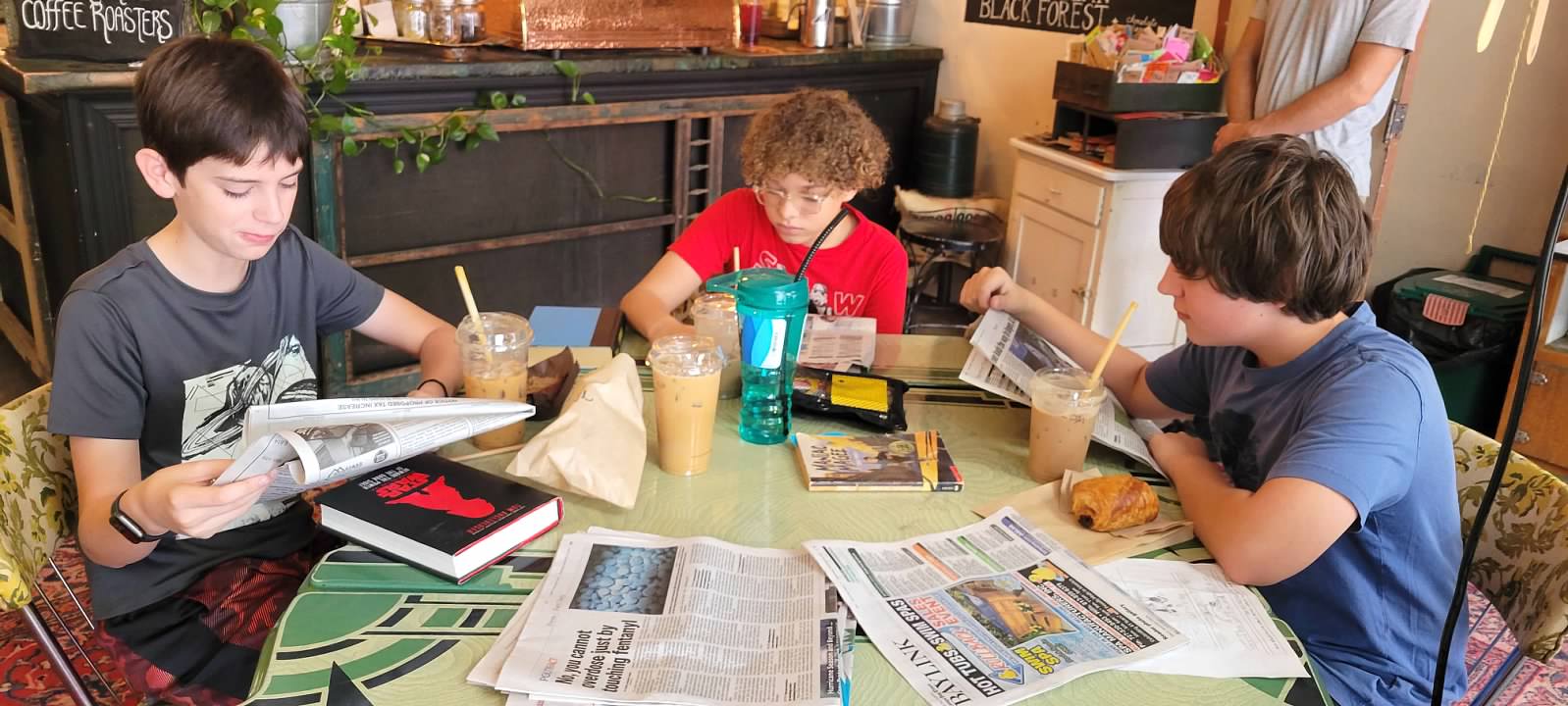Friendships are an essential part of a well rounded life, and are especially important to the development of young people. Friendships provide emotional support, companionship, and the opportunity to learn valuable social skills, oftentimes through trial and error. However, facilitating friendships, especially when they hit their inevitable challenges, can sometimes be … challenging. At Indi-ED, we understand the time that it takes to develop these meaningful friendships, and dedicate a substantial part of month 1 to building and maintaining positive relationships in the classroom.
Here’s how:
- Shared Interests & Shared Experiences
One of the most natural ways for young people to form friendships is through shared interests. A quick and easy way I’ve encouraged connections through mutual interests is through a question in a morning warmup or afternoon meeting – something as simple as a poll for the superior house pet: cats or dogs, or a ‘would you rather’ question that makes them laugh and think and share their process of logical reasoning with each other can help students understand what they have in common. When students get to share a piece of their home lives, or something about the way that they think, connections start to form that are deeper than shared time and space. Then I like to put them into challenging scenarios where they must work together, like the ‘stranded on a boat with only 3 items’ hypothetical or the ‘human knot challenge’ where they have to work together to untie themselves without letting go of each other’s hands. Nothing bonds people like overcoming a challenge together.

2. Teach Social Skills
Effective communication and social skills are crucial for navigating the world and building friendships. We can all benefit from learning and practicing how to initiate conversations, actively listen, and express ourselves clearly. After the lockdown and social distancing of Covid, these “soft skills” can be tough for all of us, especially so for young people who may not have had the opportunity to learn in the first place. Role-playing and practicing social scenarios can boost their confidence in social interactions. Students really enjoy getting out of the building and walking to the local coffee shop, and the quick and easy interaction with a barista is a safe, low-stakes social scenario for practicing speaking confidently, making eye contact, and creating rapport with a stranger.
- Foster Empathy
Empathy is the foundation of healthy relationships. Teachers can encourage young people to understand and share in the feelings of others through the power of story. Historical fiction is one of my favorite teaching genres, because it gives a face and name to an individual rather than the abstract dates and places of an event. I will only teach about Anne Frank while also discussing the Scholl siblings who started the White Rose resistance group, and Liesel Meminger’s heartbreaking journey in The Book Thief. Every person has a unique and valuable perspective, and sharing multiple points of view can help students gain global context and build deeper empathy. Then, when we share our deep fears and personal goals with each other, students can practice their empathy and provide genuine support for each other.

- Address Typical Challenges in Friendships and Creating a Safe Space
Most friendships have their fair share of challenges, but especially so with young people as they can change so much as they get older. Some friendships can foster and encourage positive growth and might last a long time; other friendships might be good for a time, but act merely as temporary life rafts as a person navigates through different phases of life. Something that is so important for young people to know: the journey of friendship doesn’t have to be smooth, and we don’t have to be friends with everyone forever. Feelings of being left out, forgotten, or challenged by friends who only used to be supportive can be jarring and disruptive, but are also pretty common. At Indi-ED, we have had the opportunity to create a space where students can reflect on and talk about their feelings, and be genuinely heard and supported by adults and their peers. Students often share deeply personal thoughts and feelings in our morning meeting space, in front of the entire student body. It is so important that there is a foundation of trust so that there can be this type of open communication with peers and adults at school. In my class, we talk about group agreements as a place for boundary setting, “I don’t like when people get so close to me I can feel them breathing”, and also a place for celebrating the good stuff, “I appreciate that the cohort genuinely listens to and cares about each other when we’re feeling sad”. Group agreements are a student-created tool that can help students cultivate a safe and positive classroom environment for themselves.
Facilitating friendships for young people is a valuable investment in their emotional well-being and personal development. By providing opportunities for connection, teaching social skills, and fostering empathy and inclusivity, we can help them build lasting, meaningful connections that will enrich their lives for years to come.


